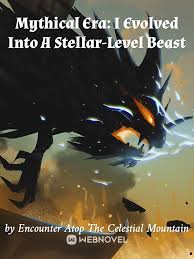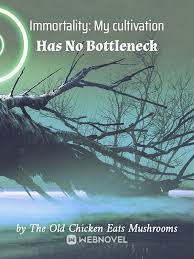147 Making Soap
"It's been a while, Teacher Jeeves," Guy commented casually while his attention was rapt on a container of lye solution. He was with his two students: Jean and Dora, in the clearing outside the orphanage.
"Don't get me started," Al groaned. "The sabbatical I applied for was denied because apparently, I 'was not involved in teaching or instructional activities in any way to warrant a sabbatical'. Kaist tore the application in front of me to boot. So I had to run a few lectures to appease the public."
"That should have attracted quite a crowd?" Guy responded with a light chuckle. He gestured for Dora to place the stack of mould blocks on the ground next to him in an ordered grid.
"Not really," Al said with a devious smile. "They were impromptu lectures at awkward hours. Not many even knew about it until the last minute, by which time I was long gone."
Guy hummed in response and instructed Jean to place the small cauldron she was carrying next to the moulds.
"So what are you doing now?" Al asked while cocking his eyebrows upwards with interest.
"Making soap," Dora responded with an excited hop.
"Soap?"
Dora's pupils darted upwards as she narrated, "Soaps are... surfactants used in cleaning."
"What are surfactants?" Al inquired back.
Dora stuttered as she struggled to recollect the answer. She turned to Jean and pleaded with her eyes, to which her Medium Sis acquiesced readily.
"It is a substance that reduces the surface tension between a liquid and solid, liquid or gas," Jean answered. She then added, "The soap can be used in households and personally to clean surfaces by getting rid of harmful microorganisms and oils."
Al nodded contemplatively before asking, "What use it for you? Can't you just cleanse yourself with mana?"
"It isn't for us, Uncle Jeeves. It is for the people in the village. We are trying to develop a product to sell through the Rasmus Clan's apothecary channels," Jean clarified.
"Why is the clan investing into the mortal market segment all of a sudden? It doesn't pay as highly as the others," Al commented with a slight frown.
"Per item, that may be the case. However, non-magical consumers outnumber the mage population by a significant margin. Why should we forfeit such a market so easily?" Jean said. "But that is beside the point. We've been running an experiment in the village and found that people who use soap and wash regularly suffer from fewer illnesses than those that do not. The division is actually quite staggering - almost 90%."
"Mortals suffer from illnesses all the time," Al shrugged.
"But they don't have to," Jean affirmed staunchly. "What good is a healer that segregates their patients based on their strength and status? If an illness or disease can be prevented, why shouldn't we take measures to do so?"
"Alright, alright," Al waved his hand good-naturedly. "I was just asking, you don't have to get all worked up. Besides, last I remembered there was something like this being used by mortals already."
"There is a crude alternative which is used primarily for cleaning clothes," Guy contributed. "However, Jean discovered that they aren't clinically safe to use. In fact, excessive usage can even damage the clothes they clean."
"This soap has a myriad of uses across multiple market segments," Jean added. "While the base substance is effective for use on skin, we can augment it to cater to a variety of scenarios. Infusing fragrant oils during manufacture doubles the soap as a perfume, this was especially attractive to the female population in the village. By pouring the substance into interesting moulds gives them exciting shapes and designs which is attractive to the young."
Al hummed in contemplation before pointing at a rack of phials next to the cauldron, filled with a plethora of alchemical ingredients. "What are those for?"
"We are trying a series of medicinal soaps that will be infused with beneficial oils to augment certain aspects of life," Jean explained.
"This oil solution helps accelerate the rate at which injuries heal," she emphasised while holding a phial with a viscous red liquid.
"This oil solution provides nourishment to pregnant mothers," she continued. "Unfortunately, there is currently only one pregnant woman in the village, and she is well into her third trimester, so we don't have a wide enough sample."
"Can we start now?" Dora said with a pout.
"Sure!" Guy answered enthusiastically. "Make sure to keep a safe distance, Dora. The lye solution is extremely caustic."
Dora nodded vigorously and hopped a few steps back. She gazed with gleaming eyes at Guy, who was now pouring in the pre-processed animal fat into the cauldron.
Guy moved with practised efficiency. This wasn't his first time making soap, after all. Back in his first life, Guy used to do this exercise regularly as a fun activity with his students. The process wasn't difficult and doubled as an enjoyable and educational project. Kids could have fun designing their own soaps, and dabble in science at the same time.
After coming to this world, Guy was surprised to find out that soaps hadn't been invented in the traditional sense. There were iterations of old-school soaps such as the ones used in ancient Babylonia and Rome, however, they weren't optimal for use on skin. The general public had a pretty lax outlook towards cleanliness. While there were public baths and saunas here, deep cleansing was often relegated to a |Clean| cantrip that would expel visible dirt and oils. However, it was used sparsely due to its unusually high mana consumption which left the caster extremely drained and exhausted. While it was effective, it couldn't clear the surfaces of malicious bacteria and disease-spreading microorganisms, since no matter how strong magic may be, the user cannot target something they do not know of.
Apart from that, the public generally relied on alchemical concoctions, or bath salts as cleansing alternatives that had an equivalent, if not higher, efficacy compared to modern soaps. However, as expected, these were exclusively in use by the upper class.
Therefore, the first thing Guy did after arriving in the village was to recreate soap from his memory. He introduced it to Grace, who latched on to it almost immediately after observing just how well it treated her skin. Jean took to it after she realised the potential the substance held in the field of healing and healthcare. Thus began the duo's fervent experiments to develop different varieties of soaps for different uses and applications.
To make soap, two key ingredients are required: fat and lye. Through the years, Guy had perfected the methodology to a T. The hardest part was of course sourcing the lye. Guy wanted to make the experiment repeatable and scalable, as well as accessible. To do that, considering a lot of his students lived in rural villages, Guy had modified recipes from the Internet and from books to fit their situation.
Lye could be made using wood ash. Obtaining wood ash wasn't difficult since most rural villages used wood as fuel for heating and cooking. Guy would fill a non-metallic bucket, which had a hole near the bottom to drain the lye out, with a few inches of non-alkaline gravels and rock. On top of that, he would fill in a substantial layer of sand. Above that, he would layer rocks or pebbles. Finally, he would fill the rest with the wood ash to just below the brim.
Once that was prepared, Guy would pour in distilled or filtered water, bit by bit. As the bucket filled in, he would tap the sides to let out air and add more till the water reached the brim. The bucket would then be covered and left overnight. The way to test if the lye was ready was by testing the density of the liquid, which is by lowering a potato into the liquid and observing its behaviour. If it floats, it's too concentrated and more water is required to dilute it. If it sinks, it needs more time for the lye to concentrate. If it hovers, then it is prepared and ready to be drained through the hole at the base of the bucket.
Lye is extremely caustic, and Guy would make it a point to warn his students to only handle the chemical under the supervision of an adult. This process of extracting lye from the wood ash is known as leaching.
To make the soap, the animal fat had to be melted into a liquid. Optimally it must be at a hundred degrees Celsius.
"Let's start with yours first, Dora," Guy declared. He then slowly poured in a measured quantity of lye water into the liquid fat in the cauldron and started to stir it.
As the liquid started turning a cloudy shade, he called Dora closer and asked, "Can you tell me what's happening here?"
"It's the spon- saponification reaction," Dora answered with some difficulty.
"Good! Have you prepared all the fragrances and oils?" Guy asked.
"Yes!" Dora chirped. "This one is from my favourite flower. Medium Sis helped me infuse it into an oil," she said as she handed a small phial of murky pink oil.
"I want to gift it to everyone at the orphanage," Dora added with a bright smile.
"Awesome!" Guy took the phial and poured it in with the cloudy, viscous liquid.
"Anything else?"
Dora nodded and retrieved a small pouch filled with colourful petals, as well as another phial with powdered colouring. Guy took those and poured them into the milky solution while continuing to stir them. As the solution reached a sufficient thickness, he carefully opened the spigot at the base of the cauldron and let it flow out into the mould placed at the exit. The cauldron belonged to Jean and was made of a highly resilient mana metal. It had a variety of enchantments on it that increased efficiency of draining, cleaning, as well as other tasks including rapid heating and cooling.
"There!" Guy exclaimed as he handed the filled and closed mould to Dora. "You should know the drill. Let it settle, and it should be ready by tomorrow."
Dora yipped excitedly and carried her creation away with enthusiasm.
"Let's get to the rest now, shall we?" Guy asked Jean.
Jean nodded and began preparing the cauldron by herself.
"Don't get me started," Al groaned. "The sabbatical I applied for was denied because apparently, I 'was not involved in teaching or instructional activities in any way to warrant a sabbatical'. Kaist tore the application in front of me to boot. So I had to run a few lectures to appease the public."
"That should have attracted quite a crowd?" Guy responded with a light chuckle. He gestured for Dora to place the stack of mould blocks on the ground next to him in an ordered grid.
"Not really," Al said with a devious smile. "They were impromptu lectures at awkward hours. Not many even knew about it until the last minute, by which time I was long gone."
Guy hummed in response and instructed Jean to place the small cauldron she was carrying next to the moulds.
"So what are you doing now?" Al asked while cocking his eyebrows upwards with interest.
"Making soap," Dora responded with an excited hop.
"Soap?"
Dora's pupils darted upwards as she narrated, "Soaps are... surfactants used in cleaning."
"What are surfactants?" Al inquired back.
Dora stuttered as she struggled to recollect the answer. She turned to Jean and pleaded with her eyes, to which her Medium Sis acquiesced readily.
"It is a substance that reduces the surface tension between a liquid and solid, liquid or gas," Jean answered. She then added, "The soap can be used in households and personally to clean surfaces by getting rid of harmful microorganisms and oils."
Al nodded contemplatively before asking, "What use it for you? Can't you just cleanse yourself with mana?"
"It isn't for us, Uncle Jeeves. It is for the people in the village. We are trying to develop a product to sell through the Rasmus Clan's apothecary channels," Jean clarified.
"Why is the clan investing into the mortal market segment all of a sudden? It doesn't pay as highly as the others," Al commented with a slight frown.
"Per item, that may be the case. However, non-magical consumers outnumber the mage population by a significant margin. Why should we forfeit such a market so easily?" Jean said. "But that is beside the point. We've been running an experiment in the village and found that people who use soap and wash regularly suffer from fewer illnesses than those that do not. The division is actually quite staggering - almost 90%."
"Mortals suffer from illnesses all the time," Al shrugged.
"But they don't have to," Jean affirmed staunchly. "What good is a healer that segregates their patients based on their strength and status? If an illness or disease can be prevented, why shouldn't we take measures to do so?"
"Alright, alright," Al waved his hand good-naturedly. "I was just asking, you don't have to get all worked up. Besides, last I remembered there was something like this being used by mortals already."
"There is a crude alternative which is used primarily for cleaning clothes," Guy contributed. "However, Jean discovered that they aren't clinically safe to use. In fact, excessive usage can even damage the clothes they clean."
"This soap has a myriad of uses across multiple market segments," Jean added. "While the base substance is effective for use on skin, we can augment it to cater to a variety of scenarios. Infusing fragrant oils during manufacture doubles the soap as a perfume, this was especially attractive to the female population in the village. By pouring the substance into interesting moulds gives them exciting shapes and designs which is attractive to the young."
Al hummed in contemplation before pointing at a rack of phials next to the cauldron, filled with a plethora of alchemical ingredients. "What are those for?"
"We are trying a series of medicinal soaps that will be infused with beneficial oils to augment certain aspects of life," Jean explained.
"This oil solution helps accelerate the rate at which injuries heal," she emphasised while holding a phial with a viscous red liquid.
"This oil solution provides nourishment to pregnant mothers," she continued. "Unfortunately, there is currently only one pregnant woman in the village, and she is well into her third trimester, so we don't have a wide enough sample."
"Can we start now?" Dora said with a pout.
"Sure!" Guy answered enthusiastically. "Make sure to keep a safe distance, Dora. The lye solution is extremely caustic."
Dora nodded vigorously and hopped a few steps back. She gazed with gleaming eyes at Guy, who was now pouring in the pre-processed animal fat into the cauldron.
Guy moved with practised efficiency. This wasn't his first time making soap, after all. Back in his first life, Guy used to do this exercise regularly as a fun activity with his students. The process wasn't difficult and doubled as an enjoyable and educational project. Kids could have fun designing their own soaps, and dabble in science at the same time.
After coming to this world, Guy was surprised to find out that soaps hadn't been invented in the traditional sense. There were iterations of old-school soaps such as the ones used in ancient Babylonia and Rome, however, they weren't optimal for use on skin. The general public had a pretty lax outlook towards cleanliness. While there were public baths and saunas here, deep cleansing was often relegated to a |Clean| cantrip that would expel visible dirt and oils. However, it was used sparsely due to its unusually high mana consumption which left the caster extremely drained and exhausted. While it was effective, it couldn't clear the surfaces of malicious bacteria and disease-spreading microorganisms, since no matter how strong magic may be, the user cannot target something they do not know of.
Apart from that, the public generally relied on alchemical concoctions, or bath salts as cleansing alternatives that had an equivalent, if not higher, efficacy compared to modern soaps. However, as expected, these were exclusively in use by the upper class.
Therefore, the first thing Guy did after arriving in the village was to recreate soap from his memory. He introduced it to Grace, who latched on to it almost immediately after observing just how well it treated her skin. Jean took to it after she realised the potential the substance held in the field of healing and healthcare. Thus began the duo's fervent experiments to develop different varieties of soaps for different uses and applications.
To make soap, two key ingredients are required: fat and lye. Through the years, Guy had perfected the methodology to a T. The hardest part was of course sourcing the lye. Guy wanted to make the experiment repeatable and scalable, as well as accessible. To do that, considering a lot of his students lived in rural villages, Guy had modified recipes from the Internet and from books to fit their situation.
Lye could be made using wood ash. Obtaining wood ash wasn't difficult since most rural villages used wood as fuel for heating and cooking. Guy would fill a non-metallic bucket, which had a hole near the bottom to drain the lye out, with a few inches of non-alkaline gravels and rock. On top of that, he would fill in a substantial layer of sand. Above that, he would layer rocks or pebbles. Finally, he would fill the rest with the wood ash to just below the brim.
Once that was prepared, Guy would pour in distilled or filtered water, bit by bit. As the bucket filled in, he would tap the sides to let out air and add more till the water reached the brim. The bucket would then be covered and left overnight. The way to test if the lye was ready was by testing the density of the liquid, which is by lowering a potato into the liquid and observing its behaviour. If it floats, it's too concentrated and more water is required to dilute it. If it sinks, it needs more time for the lye to concentrate. If it hovers, then it is prepared and ready to be drained through the hole at the base of the bucket.
Lye is extremely caustic, and Guy would make it a point to warn his students to only handle the chemical under the supervision of an adult. This process of extracting lye from the wood ash is known as leaching.
To make the soap, the animal fat had to be melted into a liquid. Optimally it must be at a hundred degrees Celsius.
"Let's start with yours first, Dora," Guy declared. He then slowly poured in a measured quantity of lye water into the liquid fat in the cauldron and started to stir it.
As the liquid started turning a cloudy shade, he called Dora closer and asked, "Can you tell me what's happening here?"
"It's the spon- saponification reaction," Dora answered with some difficulty.
"Good! Have you prepared all the fragrances and oils?" Guy asked.
"Yes!" Dora chirped. "This one is from my favourite flower. Medium Sis helped me infuse it into an oil," she said as she handed a small phial of murky pink oil.
"I want to gift it to everyone at the orphanage," Dora added with a bright smile.
"Awesome!" Guy took the phial and poured it in with the cloudy, viscous liquid.
"Anything else?"
Dora nodded and retrieved a small pouch filled with colourful petals, as well as another phial with powdered colouring. Guy took those and poured them into the milky solution while continuing to stir them. As the solution reached a sufficient thickness, he carefully opened the spigot at the base of the cauldron and let it flow out into the mould placed at the exit. The cauldron belonged to Jean and was made of a highly resilient mana metal. It had a variety of enchantments on it that increased efficiency of draining, cleaning, as well as other tasks including rapid heating and cooling.
"There!" Guy exclaimed as he handed the filled and closed mould to Dora. "You should know the drill. Let it settle, and it should be ready by tomorrow."
Dora yipped excitedly and carried her creation away with enthusiasm.
"Let's get to the rest now, shall we?" Guy asked Jean.
Jean nodded and began preparing the cauldron by herself.







